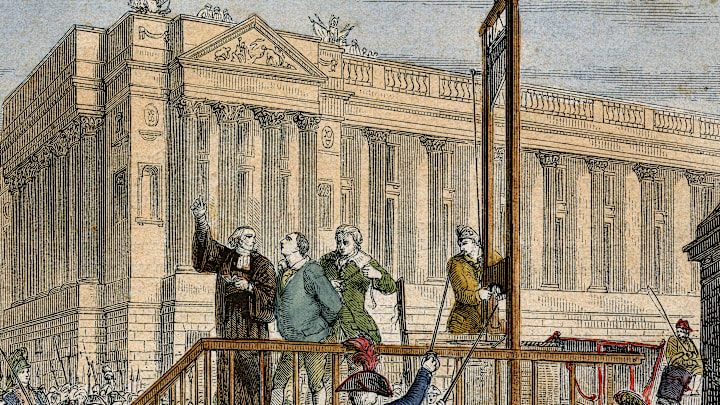
Mary, Queen of Scots
"O Lord, into Thy hands I commend my spirit."
Mary Stuart became Queen of Scotland just six days after her birth, and thanks to her marriage to the French dauphin, she was briefly Queen of France. However, her desire to become Queen of England saw her lose her life.
After the suspicious death of her husband (and a swift remarriage), Mary was captured by her own people and forced to relinquish the throne. Her cousin, Elizabeth I, was willing to help her escape Scotland, but she then imprisoned her in England. This forced Mary into a desperate situation, and she spent more than 18 years in captivity.
As a popular option for Catholics opposing Elizabeth's rule, Mary had a dangerous amount of power to wield. After a reported coup attempt, Elizabeth tried her for treason and had Mary beheaded in 1587. At the execution, Mary painted herself as a Catholic martyr, speaking Jesus's last words in Latin: "In manus, Domine, tuas commendo animam meam."

Charles I of England
"When I put out my hands this way, then. Stay for the sign."
Charles I was the second son of King James VI and I, the monarch who merged England and Scotland's thrones. He took over after his father's death in 1625, but his marriage to a Catholic princess and his insistence on his own power led him to face off against both the English and Scottish parliaments in the English Civil War.
After a series of captures and escapes, King Charles was put on trial for treason against his country. While he argued that there was no earthly court with the authority to judge him, he was found guilty and sentenced to beheading. The king was not allowed to speak to the people before his death, but he still argued that he was innocent and that the execution was not lawful.
On the scaffold, Charles proclaimed himself to be "the martyr of the people," and his last words are often listed as being: "I go from a corruptible, to an incorruptible Crown; where no disturbance can be, no disturbance in the World." However, his true last words were practical, ordering his own executioner when to strike.
